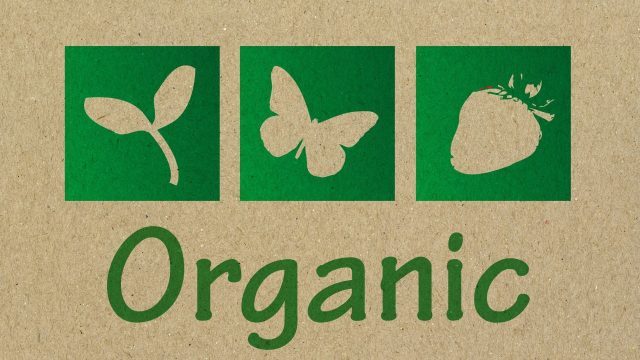22
Sep
National Organic Standard Board Receiving Public Comments on Compost Standard, Other Key Issues

(Beyond Pesticides, September 22, 2025) Comments are due by 11:59 pm ET on October 8, 2025!
When the National Organic Standards Board (NOSB) meets twice a year, it is an opportunity for the pubic to weigh in on the integrity of organic standards, a process referred to among stakeholders as “continuous improvement.” While there are major issues before the board at the upcoming October remote public hearing and in-person in November.
Organic As a means of taking on the challenges of health threats, biodiversity collapse, and the climate emergency, the review and updating of organic standards requires the public’s involvement in the current public comment period—to keep organic strong and continually improving.
The Fall National Organic Standards Board (NOSB) meeting is scheduled for November 4 – 6, 2025. The public meeting of the NOSB is preceded by an opportunity for public comments in writing and via online webinars on October 28 and 30, 2025, from 12 pm to 5 pm ET that concern how organic food is produced. ℹ️ A draft meeting agenda is available here; a more detailed document with proposals and discussion documents is available here.
- Sign up for a 3-minute oral public comment timeslot by September 30! Remember, sign-ups fill up fast!
- Written comments must be submitted through Regulations.gov by 11:59 pm ET on Wednesday, October 8, but please get them in as early as possible!
- Links to the virtual comment webinars and the public meeting will be posted on this webpage soon after the comment deadline.
The NOSB is responsible for guiding the U.S. Department of Agriculture (USDA) in its administration of the Organic Foods Production Act (OFPA), including the materials (substances) allowed to be used in organic production and handling. The role of the NOSB is especially important as we depend on organic production to protect our ecosystem, mitigate climate change, and enhance our health.
The NOSB plays an important role in bringing the views of organic producers and consumers to bear on USDA, which is not always in sync with the principles and values that have built the organic market. There are many important issues on the NOSB agenda this Fall. We also encourage you to use the Beyond Pesticides organic webpage and comment on as many issues as you can. For a complete discussion, see Keeping Organic Strong and the Fall 2025 issues page.
Beyond Pesticides has identified many key issues that are before the board. Four of these issues, and Beyond Pesticides’ positions, include the following:
- Keep synthetic “compostables” out of organic compost.
Please support the proposal of the Crops Subcommittee (CS) to keep synthetic compostable materials out of organic compost. Compost from plant and animal materials is of fundamental importance to organic practices. Composting is one way that organic growers meet the requirement in law to “foster soil fertility, primarily through the management of the organic content of the soil through proper tillage, crop rotation, and manuring.” The integrity of organic production must be maintained by preserving the integrity of compost. Contaminants in broadly defined “compost feedstocks” cannot be predicted, but history suggests that more persistent toxic pollutants will be found. The NOSB must maintain control over synthetic materials allowed in organic production, as required by the Organic Foods Production Act (OFPA). Research continues to raise alarms about the hazards associated with the use of plastic, including the microplastic particles that are distributed in alarming amounts throughout the environment and taken up by organisms, including humans. Only synthetic materials that are specifically added to the National List through the prescribed process should be allowed in compost destined to be an input into organic production. The NOSB should reopen the workplan item on contaminated inputs that is currently on hold. - Keep synthetic hormones out of organic milk production.
Oxytocin is available as a synthetic hormone and currently allowed in organic dairy. A vague annotation has resulted in some producers using it inappropriately for milk letdown. Oxytocin is a hormone and, even if rarely used, it leaves organic dairy farmers open to valid criticism that they can still use hormones. For this reason, the two largest organic milk buyers in the U.S. did not support it remaining on the National List of Allowed and Prohibited Substances. Alternative treatments are available. The NOSB should allow oxytocin to sunset or be removed from the National List. If it remains on the National List, the NOSB should adopt the recommended annotation, “use in post parturition therapeutic applications within 3 days after birth. It may not be administered to increase an animal’s milk production or for milk letdown.” - Eliminate the blanket allowance of “inert ingredients.”
Despite repeated recommendations from the NOSB, the National Organic Program at USDA has not moved to evaluate individual “inert” ingredients, which may be more toxic than active ingredients allowed in organic production and make up the largest part of pesticide products. The NOSB should delist them unless individually reviewed under the National List review standards. - Ensure that online organic consumers have full information.
The law requires that organic products are labeled with the organic seal, ingredients, and identification of the certifier. This labeling is not always visible to online consumers. The NOP must require full labels to be provided in online sales platforms.
The pubic can sign up and access the site to leave a message for the NOSB by clicking here to go to the Action page! Please feel free to copy-and-paste Beyond Pesticides’ comments, or parts of the comments, when submitting.
For more information on organic, see Beyond Pesticides’ organic agriculture webpage.










